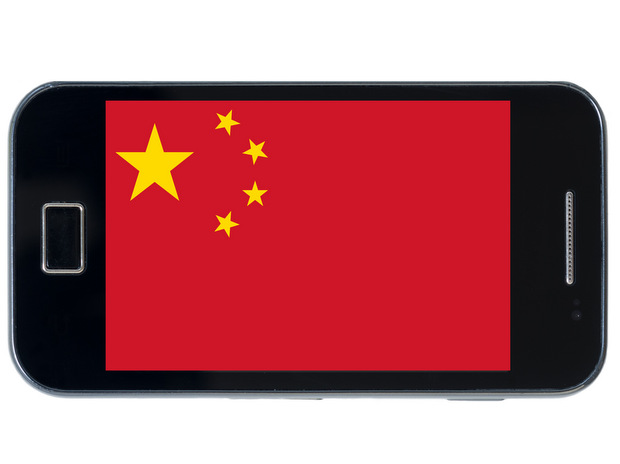Customized ROM not suitable smartphone strategy for China

Several Chinese Internet companies have taken to releasing customized Android ROMs for smartphone, preloaded with value-added services, as a way to extend their reach and differentiate from competitors. However, this strategy will not do well for foreign players eyeing the Chinese market due to its limited reach.

Chinese companies which have rolled off their customized ROMs include Xiaomi with MIUI ROM, Baidu with Baidu Yun ROM, and Tencent with tita. Xiaomi manufactures its own phones, while Baidu partners other hardware makers to build its phones. Tencent's ROM is still in beta, but users can download and install the ROM for certain smartphones including Samsung I9100 and I9250 as well as Google Nexus S.
T.Z. Wong, senior market analyst at IDC Asia-Pacific, said releasing phones with customized Android ROM is more common in China compared to other regions as the local market is big enough to accommodate a variety of ROMs. Some vendors also market their ROMs as differentiators for their smartphones.
Wong said: "The idea behind these Android ROMs is that they allow phonemakers to customize the preloaded value-added services, such as Baidu's search and map services, and add functionalities that better fit the needs of Chinese users."
According to Sandy Shen, research director at Gartner, for Chinese vendors, releasing a customized ROM allows them to reach a wider consumer base as users can install their chosen customized ROM. "For [the ROM developer], the hardware is not important but they want to grow the user base of their own OS," Shen said.
This was the case for Xiaomi. Prior to launching its first smartphone, the company launched its MIUI ROM which has over 1.5 million registered users as of March 2013.
Wong noted that for ROM developers to see returns, it will have to quickly expand its user base and ensure that services and functionality are unique to keep users on the ROM.
Foreign players need not apply
For foreign phonemakers looking to target the Chinese market, though, releasing a customized ROM is not a recommended strategy.
Wong noted: "[Customized] ROMs still remain a niche segment, contributing to less than 10 percent of smartphone shipments in mainland China in 2012. We don't expect it to grow dramatically so foreign phone makers might not find it worthwhile to create their own ROMs."
Shen added that releasing a customized is not an effective way to grow a user base as it only appeals to tech-savvy users who know how to "flash" or root their smartphones. "For mainstream customers, they will buy [the phone directly] from the store, and stick with that OS and hardware for the lifetime of the device," she said.
Even for advanced users, installing a new ROM can create several issues. The Gartner analyst said the device could become permanently unusable or fail to return to its factory setting. She added that the new software might not be optimized for the hardware.
OS installation not about money, but about user experience
According to Chinese reports in January, Baidu was paying smartphone manufacturers 10 yuan (US$1.60) for each phone that installs the Baidu ROM. Local media reported that Baidu partnered Dell to launch Baidu smartphones, but shipment had been "disappointing" and the Chinese search company had to resort to paying phonemakers to ship with its ROM.
When asked about the usual practice in China when it comes to smartphone OS installation, an Aliyun OS spokesperson said: "Cooperation between phonemakers and OS developers takes different forms and is not limited to an OS developer paying the phonemaker." The Aliyun smartphone OS is backed by Chinese e-commerce giant Alibaba Group.
The spokesperson told ZDNet Asia the manufacturer's decision to include a certain OS typically depended on the discussions and negotiations between the OS developer and device maker. She added that Aliyun OS explored several forms of cooperation with phonemakers.
Chinese smartphone maker, Huawei, declined to share how it chooses which OS to include in its devices. Tang Siew Wai, marketing director of Huawei Device for the South Pacific region, said: "I am not in the position to disclose the procedures with our industry partners because these details of our cooperation mode are confidential."
However, Tang noted that Huawei currently had no plans to launch any proprietary OS "in the foreseeable future".
For Aliyun OS, cooperation between the company and its manufacturering partners is "not simply about money". The spokesperson said: "Alibaba Group is committed to building an ecosystem, and Aliyun OS was built to create an ecosystem in the mobile sphere. We are more concerned about the healthy development of the entire ecosystem, and how we can enable all participants to profit while together creating great products and user experience."
Huawei echoed similar sentiments. Tang said: "Our innovation strategy is always governed by our commitment to provide consumers with devices that enhance their communicationsand lifestyles, based on open collaborations.
"Therefore, we will continue to work closely with our industry partners around the world, and invest in research and development, to bring together compelling devices that best meet consumers' needs," he added.